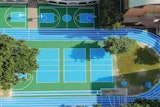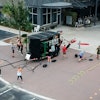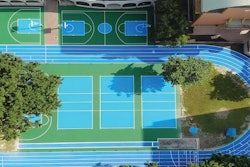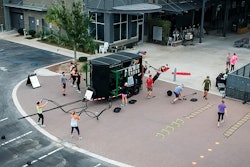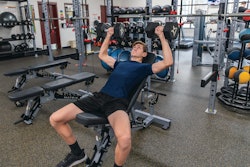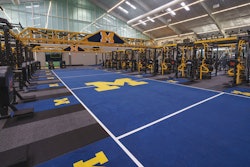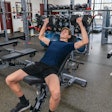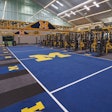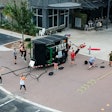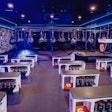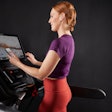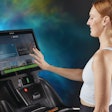Many factors can contribute to the self-consciousness some people experience in the exercise environment. One is anxiety about appearance.
"I did everything I could to help her feel more comfortable in our fitness center," your friend sighs. "But in the end, she never really felt at home here. She said she always felt like she was on display, like everyone was critiquing her size and shape. She had great motivation though, and lost 10 pounds over the two months we worked together. But while she worked out at the center three times a week in the beginning, she gradually started working out more at home, and walking with a friend. Today she told me she just joined a women's-only facility that feels friendlier. What could we be doing to make our center more comfortable for more people? What could I have done differently with her?"
Personal trainers and other fitness professionals must become more sensitive to the way new clients experience the workout environment. Many clients feel self-conscious in the fitness center. This self-consciousness detracts from the positive exercise experience that produces a strong commitment to regular physical activity. In fact, the negative emotions associated with self-consciousness create a strong disincentive to continue working out. Many factors can contribute to the self-consciousness some people experience in the exercise environment. One is anxiety about appearance.
What is social physique anxiety?
Anxiety means worry, apprehension or feeling uneasy. Social physique anxiety is a special form of anxiety that refers to the discomfort experienced when people feel that their body is being evaluated by other people in some sort of social situation. People experience social physique anxiety when working out at a fitness center, wearing a swimsuit on the beach or even just standing up in front of a group giving a presentation.
The more people's bodies stray from the "ideal" body type, the more likely they are to experience anxiety about their appearance. But even attractive people experience social physique anxiety. They may have unrealistic ideas about how their bodies should look, have low self-esteem or be overly concerned about their appearance.
Younger people, including adolescents and even children, tend to be more anxious about their appearance than more mature adults. But social physique anxiety can interfere with exercise intentions in older adults as well, especially if they feel they do not "fit in" at the fitness center.
Researchers who have studied social physique anxiety have found that people with this problem tend to have lower satisfaction with their body's shape and size, more problems with food and negative eating behaviors, and a stronger desire to avoid exercising in public.
What can you do?
If possible, talk to people at your center, and think of ways to make exercise a more positive and less intimidating experience for people new to exercise, or people who seem uneasy. Make sure all staff members are friendly and supportive. Make fitness testing optional or at least private. See your fitness center through the eyes of someone new to exercise.
Discuss with individual clients what types of activities they feel most comfortable performing. They may be more comfortable exercising anonymously on a machine than in a class setting. Do distractions, such as listening to music or watching television, help? Encourage them to invite a friend to be their exercise buddy. Modify exercise programs in any way you can to make physical activity a positive experience that reinforces exercise adherence.
Suggest positive reasons for exercising to your clients. Encourage them to look for emotional health benefits such as stress management and positive mood. Give new clients concrete suggestions for fitting in. Tell them what to wear, where to change, how early to arrive for a class and so forth. Little details help ease that feeling of not belonging and not knowing what to do.
REFERENCES
Brehm, B.A. Successful Fitness Motivation Strategies. Human Kinetics: Champaign, Ill., 2004.
Gapinski, K.D., K.D. Brownell and M. LaFrance. Body objectification and "fat talk": Effects on emotion, motivation, and cognitive performance. Sex Roles: A Journal of Research 377-389, May 2003.
Russell, W.D., and R.H. Cox. Social physique anxiety, body dissatisfaction, and self-esteem in college females of different exercise frequency, perceived weight discrepancy, and race. Journal of Sport Behavior 26 (3): 298-319, 2003.
Smith, A.L. Measurement of social physique anxiety in early adolescence. Medicine and Science in Sports and Exercise 36 (3): 475-483, 2004.









